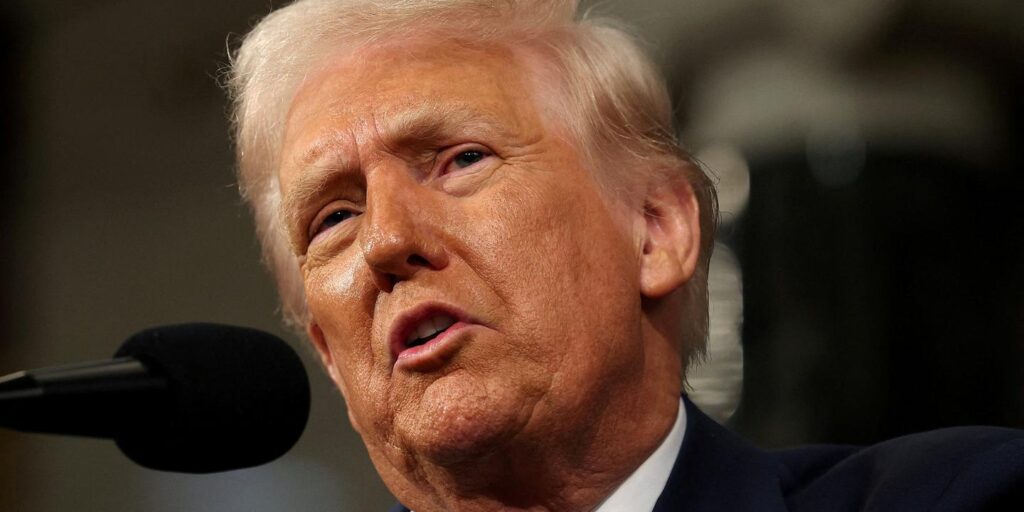America’s renewed scepticism, and even hostility under Donald Trump’s second administration, does not for one moment alter the fact that climate change is real.
Neither does it negate the reality that the Global South — including the almost 700 million-strong Association of Southeast Asian Nations (ASEAN), virtually all of which are tropical countries — is on the front line of the climate crisis.
Typhoons Tino and Uwan, which recently struck our region, especially the Philippines, are the latest proof of this and a reminder of the urgent need for climate justice.
What the Global South needs from summits like COP30 has been stated time and time again. It really boils down to four things.
The developed world needs to listen
On the one hand, developed countries need to listen to developing and less developed countries on how climate change should be addressed.
A rigid approach to the various facets of climate action, including technology, energy transition and biodiversity conservation, will ultimately frustrate the sincere, proactive measures that many Global South countries, including Malaysia and several of its ASEAN partners, are taking towards these goals.
More flexibility on the part of the Global North would go a long way towards ensuring that the war against climate change is won.
This is not an attempt to water down or deflect anything. The right to live in a sustainable environment is arguably a fundamental human right.
Israel’s devastating war in Gaza has also resulted in widespread ecocide that Western nations have remained strangely silent on, but whose ramifications — not only for the Middle East but for the wider world — will last for decades.
There should therefore be no doubt that sustainability and human rights go together. Supporting the former, especially in ASEAN and the Global South, is a means of upholding the latter.
Developed countries should bring their chequebooks
At the risk of putting things crudely, money talks. The various climate finance commitments — especially those for vulnerable nations — must not only be fulfilled, but also increased.
Projections from the United Nations Global Policy Model estimate that developing countries will need around $1.1 trillion in climate finance by 2025 and some $1.8 trillion by 2030.
The chair of the COP30 UN Climate Change Conference, Brazil, has rightly said that it hopes the meeting in Belem will be remembered as “the COP of Adaptation Implementation”. This is astute because, while I do not share the view that it is too late to act, it should be painfully clear that climate action can no longer be about setting lofty goals. Rather, the time has come to deliver.
The Global South can lead on climate change
Admittedly, the absence of the United States — as the world’s superpower and largest economy — looms over the COP and any international efforts to protect the environment. But the absence of the US is not a reason to retreat from climate action, or any other international cause; rather, it is an opportunity to reaffirm and strengthen multilateral cooperation.
Although it would be nice to have the US involved, the world can act without America. As has been widely reported, China’s carbon dioxide emissions have either flatlined or fallen over the past 18 months.
Moreover, the Tropical Forest Forever Facility (TFFF), proposed by Brazil’s President Luiz Inacio Lula da Silva, is an important part of the solution.
With the World Bank as its trustee and interim host, the TFFF seeks to support lasting conservation strategies and protect crucial tropical ecosystems through global, public and private partnerships.
With a medium-term goal of achieving a $125bn fund, the TFFF Launch Declaration has been endorsed by 53 countries and 19 sovereign wealth funds. Among them are 34 tropical forest countries, covering 90 percent of the tropical forests in developing nations.
It has been reported that Norway, Brazil, Indonesia, Portugal, France and the Netherlands have already made financial commitments. So far, $5.5bn has been announced — an encouraging, albeit modest, start to what will be a long journey.
Nevertheless, the TFFF shows that the Global South has the potential to build initiatives of its own, including on existential global challenges such as climate change.
Again, this is something the Global North must support. It arguably owes a “debt” to tropical countries for the huge carbon sinks they provide.
This must be achieved not through prescriptive policies, but through equitable, transparent climate reparations to ensure that the burden of conserving irreplaceable biodiversity does not come at the cost of education, jobs or dignity for the people of these countries.
ASEAN must do its part
The tropical countries — including those in ASEAN — cannot shirk their responsibilities, either.
It was disappointing that climate change did not feature more prominently during the recent 47th ASEAN Summit in Kuala Lumpur, which was chaired by Malaysia’s Prime Minister Anwar Ibrahim, despite the 2025 chairmanship’s theme of “Inclusivity and Sustainability.”
To be fair, the Chair’s Statement commendably noted that the regional bloc had “adopted the ASEAN Joint Statement on Climate Change” at COP30 and “welcomed the ASEAN Pavilion”, as well as “looked forward to the development of the ASEAN Climate Change Strategic Action Plan (ACCSAP) to further advance climate action in the region”.
The ASEAN Declaration on the Right to a Safe, Clean, Healthy and Sustainable Environment was also adopted during the summit in Kuala Lumpur, following several years of diplomacy among member states.
We must also not forget that the ASEAN Summit saw the historic accession of Timor-Leste to our ranks and progress on the ASEAN Power Grid.
These are all commendable achievements, but they still fall short of the proactive posture the developing world often urges the developed world to take. We must do as much — if not more — than we expect of others.
Some may argue that ASEAN lacks the financial capacity to act alone. But 2025 summits have shown that it has the credibility and influence to connect disparate blocs — including China, the BRICS coalition of economies, the Gulf Cooperation Council, the European Union, Africa and Latin America.
How far does the ASEAN Joint Statement on Climate Change go in recognising that the Intergovernmental Panel on Climate Change (IPCC) lists Southeast Asian countries among those that will be hardest hit by climate change?
Without action, words remain just words. This leaves ASEAN — which has a proud record of neutrality — vulnerable to accusations of pandering to Trump (who, as we know, was briefly present at the summit) even in the face of climate-related disasters affecting our people.
What ASEAN — and indeed the rest of the Global South — needs is bold, decisive multilateral action in partnership with like-minded regions.
The urgency that ASEAN demonstrates in defending its geopolitical agency and advancing economic integration must now manifest in stronger, more vocal climate leadership.
More can and should be done. It is still not too late for both the developed and developing worlds to win the fight against climate change.
The views expressed in this article are the author’s own and do not necessarily reflect Al Jazeera’s editorial policy.


